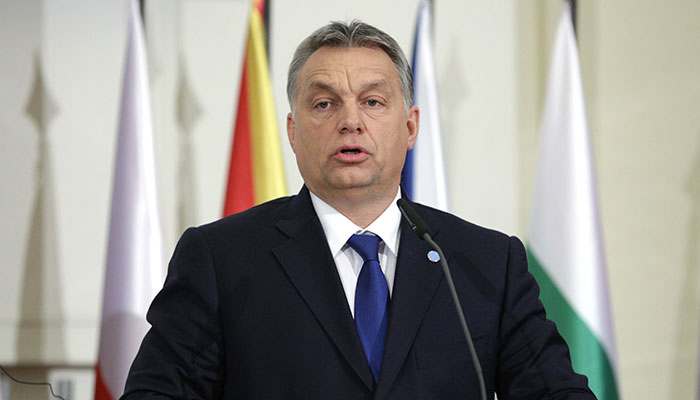web_viktor-orban_shutterstock_377541601.jpg

Hungarian prime minister Viktor Orban has announced the country will cut its corporate tax to the lowest rate in the EU.
The move reflects Orban’s desire to boost Hungary’s growth and signals a new low in tax competition as EU member states attempt to lure big, international business to their jurisdictions.
From January 2017, the government plans to slash the current tax rates of 10% on profits up to 500m forints ($1.74m) and 19% above that to a uniform 9% across the board.
That would put Hungary’s corporate tax rate below that of Ireland and Cyprus’ 12.5% – currently the joint lowest in the EU. The move still needs to be approved by businesses and submitted to parliament.
According to a statement published today on the Hungarian national economy ministry’s website, the economy minister, Mihály Varga, stated at a recent press conference that Hungarian businesses could take home an extra 145bn forints ($497m) of their income under the plans.
The shortfall this would create in the budget will be compensated by faster growth in the same year, which is expected to rise from an annual rate of 2-3% currently to 3-5%, he stated.
The country’s economy is already forecast to grow at above the EU average, at 2.1% this year and 2.6% in 2017.
Varga added that the current 2017 budget, which has already been approved by parliament, does not need to be amended as current fiscal reserves of 200bn forints ($688m) would cover any losses.
The government is also pushing for a 15% minimum wage hike in Hungary, and hopes the proposed tax cut will make room for this.
Low wages in the country have sent many of its workers overseas looking for better pay, creating a record labour shortage in the country.
However the ministry described minimum wage increases as a “main sticking point” for employers.
Payroll taxes are also set to be reduced by 4 percentage points to help accommodate for the pay rise. On this issue, the ministry said the government and employers differ “only on some nuances and timing”.
Orban, who has been looking to cut taxes in Hungary after cutting them while subject to EU budgetary discipline measures, discussed a possible tax cut last week at a conference organised by the European Bank for Reconstruction and Development.
He told the conference that the period during which Hungary could attract foreign investment with a lower wage bill was ending.
Analysis firm BMI Research agreed that tax cuts to offset the rising wages associated with Hungary's acute labour shortage will come as a "welcome relief" to manufacturors, especially in the car industry, and are likely to attract more foreign direct investment.
However with many countries in the region that compete aggressively with Hungary to win investment contracts facing similar labour market issues, it added that there is a "high chance" other nations will start offering similar tax incentives.
"This could, therefore, spark a regional 'race to the bottom' in tax policies."













